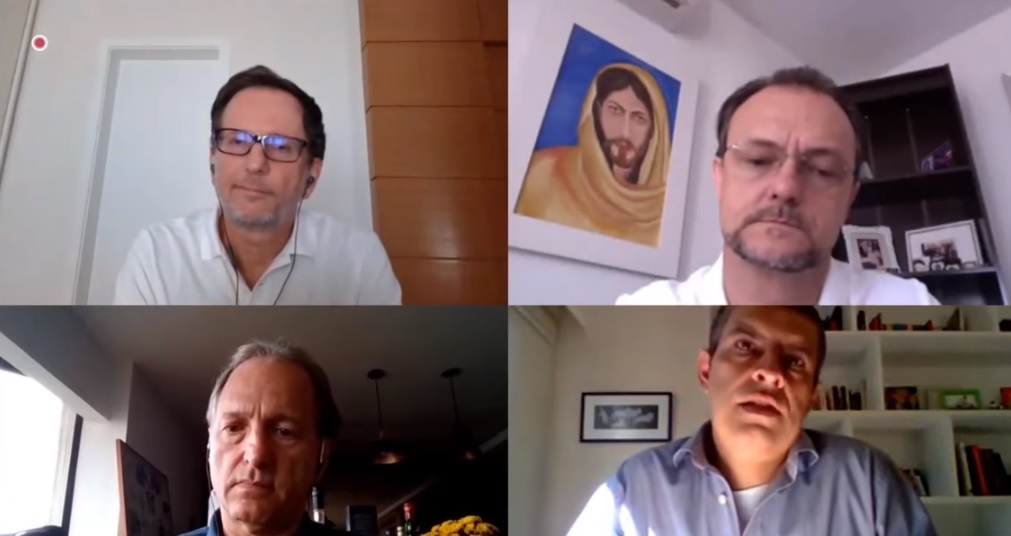
ABES promoted, on May 13, the webinar NEW TIMES: POLITICAL AND ECONOMIC SCENARIOS, which had the mediation of Rodolfo Fücher
President of ABES and founding partner of FEMP Participações, a company whose objective is to foster entrepreneurship.
At the event, Leonardo Barreto, political scientist, doctor at UnB and director of Vector Análise, drew attention to the fact that President Jair Bolsonaro faces a period of instability from the negative effects that the crisis of the new coronavirus is bringing to society Brazilian economy, but still needs to move forward in political arrangements and negotiations to maintain governance. "Party coalitions need to be negotiated continuously," he explained.
Former federal deputy Emerson Kapaz, currently director of GDSolar and consultant to Vector, considered that combating the pandemic should be prioritized and have national coordination, which has been dismantled. “Bolsonaro could be the great coordinator of a Brazilian alliance, but he went in the opposite direction. Bolsonaro is opposing some governors, already thinking about the 2022 elections. He gave up the biggest support he had, judge Sérgio Moro. The success of your government is in the hands of Paulo Guedes ”, he said.
In the evaluation of Jean Carlo de Castro, founding partner of Vector Relationship Government, he highlighted the leading role in the Legislative Branch, with the federal deputy and president of the Chamber of Deputies, Rodrigo Maia, working to be a point of balance in this complex political scenario. "Brazil had everything to be a great leader in the Latin American scenario of fighting the pandemic, but it did not assume this leadership", he analyzed.
Rafael Moreira, an economist, who worked at the Ministry of Development and who is currently CEO of Bertha Capital, a company in the Corporate Venture Capital (CVC) area, addressed the consequences in the economic scenario. He pointed out that from a macroeconomic point of view the situation is critical, due to the drop in GDP, with projections of reduction ranging from -3.7 to -7.5. "Monetary policy is marked by a reduction in the Selic interest rate, we have a strong devaluation of the real against the dollar, an increase in unemployment and the public deficit," he warned. Investors are also reluctant to invest funds in startups and look at opportunities in sectors that are growing with the crisis, such as health.
Access the link and watch the full webinar: https://www.youtube.com/watch?v=qRL7JS1MkFE












